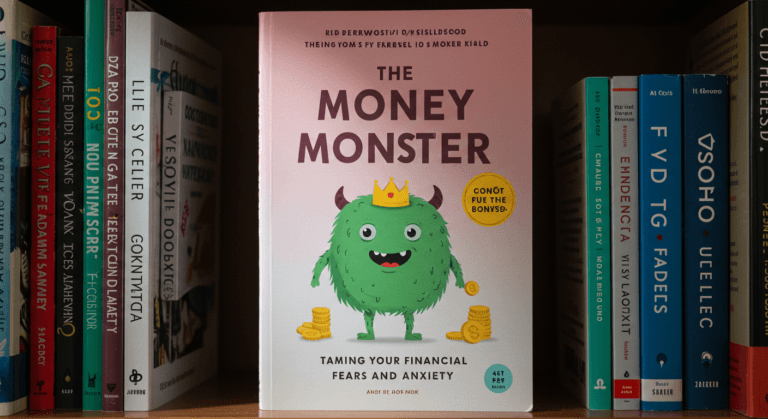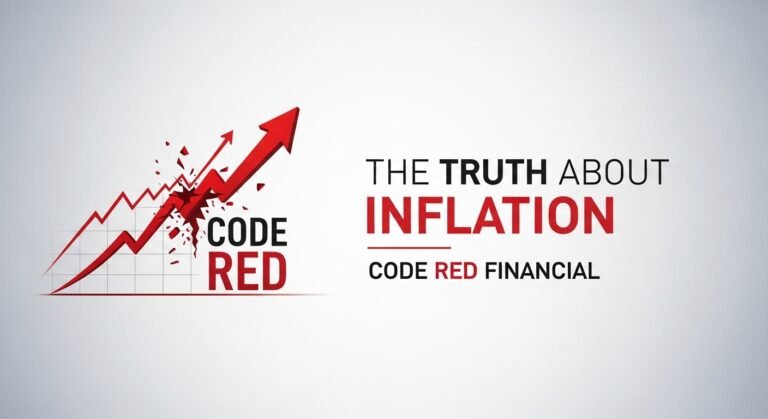
Understanding Minimalism and Its Benefits
Minimalism is often misconstrued as merely the act of decluttering physical belongings or living in a sparsely furnished space. However, it transcends these superficial aspects, embodying a broader philosophy aimed at simplifying one’s life. At its core, minimalism encourages individuals to intentionally focus on what is truly important, stripping away the excess that can lead to mental clutter and emotional distress. This lifestyle choice can ultimately lead to significant psychological and emotional benefits.
One of the primary advantages of adopting a minimalist approach is the reduction of stress. In a world saturated with material possessions and obligations, minimalism helps create a clearer space, both physically and mentally. By reducing distractions and unnecessary commitments, individuals can cultivate a more serene environment. This newfound tranquility allows for a greater ability to focus on meaningful tasks and relationships, thereby enhancing overall productivity and satisfaction.
Moreover, minimalism fosters a deeper sense of contentment. It encourages individuals to reassess their values and priorities, often leading to a more fulfilling existence. By aligning spending habits with one’s true desires, one can achieve financial freedom and a sense of abundance without the burden of excessive possessions. This shift in perspective empowers individuals to cherish experiences over material goods, further enriching their lives.
In essence, minimalism is not just about having less; it is about making room for more of what truly matters. This philosophical shift can lead to a richer, more satisfying life. Embracing minimalism can significantly improve one’s quality of life, fostering an environment where mental clarity, emotional well-being, and financial stability flourish together. With these benefits, the minimalist mindset becomes an appealing pathway to a more enriched lifestyle.
Evaluating Your Current Financial Situation
Understanding your financial situation is the vital first step toward embracing a minimalist money mindset. To begin, it is essential to methodically track your income and expenses. Maintaining a detailed record will provide clarity on your cash flow, enabling you to recognize patterns in your spending habits. Utilizing modern financial management tools or applications can simplify this process, allowing you to categorize your expenditures and easily visualize where your money goes each month.
Next, it is crucial to assess your debts. Compile a comprehensive list of all outstanding liabilities, including credit cards, loans, and any other financial obligations. This assessment not only helps in understanding your financial burden but also aids in prioritizing which debts to address first. Creating a debt payoff plan can significantly contribute to simplifying your finances as it offers a clear path towards financial independence and alleviates the mental load associated with unmanageable debt levels.
Once you have a thorough overview of your income, expenses, and debt, the next step is to identify unnecessary spending habits. Review your expenses and categorize them into essential and discretionary needs. Are there subscription services you rarely use or dining out expenses that could be reduced? By acknowledging these habits, you empower yourself to make intentional choices about where to cut back, thereby simplifying your financial landscape.
This self-awareness is fundamental for informed financial decision-making. By pinpointing unnecessary expenditures, you can redirect those funds toward savings, investments, or experiences that truly enrich your life. Ultimately, evaluating your financial situation equips you with the knowledge and confidence needed to adopt a minimalist money mindset, allowing you to live a simpler and richer life.
The Connection Between Minimalism and Financial Freedom
Minimalism, often associated with decluttering physical spaces, extends far beyond tangible possessions. It encompasses a lifestyle choice that emphasizes purpose over excess, which can significantly impact one’s financial well-being. By adopting minimalist principles, individuals often find that their financial burdens are notably reduced. This shift encourages a focus on essential needs while eliminating unnecessary expenditures, leading to a more streamlined budget and ultimately, enhanced financial independence.
One of the core tenets of minimalism is the conscious decision to prioritize values and long-term goals over momentary desires. As people begin to evaluate their spending habits through a minimalist lens, they often identify areas of overspending, such as subscriptions, dining out, or impulsive purchases. By curbing these non-essential expenses, individuals are likely to experience an increase in their savings. The concept of “less is more” resonates deeply in the minimalist ideology, providing the opportunity to allocate funds toward experiences, investments, or savings, rather than material possessions.
Moreover, minimalism fosters a mindset of intentionality and mindfulness in financial decision-making. By focusing on what truly brings joy and fulfillment, individuals are less likely to fall into the trap of consumer culture, which can lead to debt and financial stress. This disciplined approach allows for financial flexibility and freedom, enabling one to pursue passions or invest in meaningful experiences that yield long-term benefits. In essence, a minimalist financial mindset empowers individuals to take control of their finances, reducing waste and optimizing savings while paving the way for a more enriching and fulfilling life.
Practical Tips for Reducing Expenses
In the pursuit of a minimalist money mindset, reducing expenses is a fundamental aspect that can lead to a more economical lifestyle. Here are some practical strategies that can significantly lower your monthly expenditures while promoting a simplified approach to financial management.
First, consider simplifying your household bills. Start by reviewing and analyzing your expenses. Identify services that are no longer necessary, such as outdated cable subscriptions or premium services that you seldom use. Transitioning to more affordable alternatives, like streaming services or bundled plans, can help streamline your expenses. Additionally, consider utilizing tools that aggregate bills, enabling easier tracking and management of your monthly obligations.
Another effective strategy is eliminating unnecessary subscriptions. Many individuals are unaware of the number of subscription services they maintain. Regularly audit your subscriptions to determine which services provide value and which can be cancelled. By taking this step, you can free up funds that may be better allocated towards savings or investments. Being mindful about these recurring charges is crucial in fostering a minimalist financial environment.
Mindful spending should also be a priority. Before making a purchase, pause to evaluate the necessity of the item or service. Ask yourself if the purchase aligns with your long-term financial goals and your desire for a simpler life. This shift towards intentional buying can greatly reduce impulse spending, thus leading to considerable savings over time.
Lastly, emphasize quality over quantity in your purchasing habits. Investing in high-quality goods may initially require a larger financial outlay, but the long-term benefits often outweigh the costs. Quality items typically last longer, reducing the need for frequent replacements. By focusing on durability and functionality, you can cultivate a minimalist lifestyle while simultaneously ensuring that your financial resources are used wisely.
Cultivating a Mindset of Gratitude and Contentment
In the pursuit of a minimalist lifestyle, cultivating a mindset rooted in gratitude and contentment plays a pivotal role in fostering a sense of enriching well-being. By consciously focusing on what we have, rather than yearning for what we lack, we can significantly enhance our overall satisfaction with our lives and financial decisions. This shift in perspective not only helps to decrease feelings of scarcity but also encourages a deeper appreciation for existing resources.
One effective practice for developing gratitude is journaling. Regularly writing down the things for which we are thankful can create a tangible reminder of life’s abundance. For instance, at the end of each day, individuals might take a few moments to list five positive experiences or aspects of their lives. This simple act helps to reinforce a mindset of abundance and appreciation, allowing one to recognize the richness in everyday life.
Mindfulness exercises also offer valuable tools for nurturing contentment. By engaging in mindfulness meditation, an individual learns to focus on the present moment, fostering awareness of one’s thoughts and emotions. This practice can diminish the relentless pursuit of future desires and shift attention to current blessings. Techniques such as deep breathing and guided imagery can facilitate deeper levels of consciousness and appreciation for life’s simple joys.
Furthermore, surrounding oneself with a supportive community can enhance this mindset transformation. Sharing experiences with others who embrace minimalism fosters an environment of encouragement and shared appreciation. Such connections reinforce contentment, emphasizing shared values rather than consumerism.
In summary, cultivating a mindset of gratitude and contentment encourages individuals to savor the richness of their lives and make more mindful financial choices. Embracing this psychological approach empowers one to live a simpler, yet profoundly fulfilling life. Incorporating journaling and mindfulness practices allows for a deeper engagement with the present, ultimately leading to a more satisfying and enriched existence.
Investing in Experiences over Possessions
In today’s consumer-driven society, individuals often find themselves trapped in a cycle of acquiring material possessions. However, adopting a minimalist money mindset encourages prioritizing experiences over things. This approach is rooted in the understanding that experiences can lead to lasting happiness, personal growth, and enriched lives. Rather than accumulating items that may only provide temporary satisfaction, focusing financial resources on experiences fosters a deeper sense of fulfillment.
Travel, for instance, offers invaluable opportunities for cultural immersion, personal development, and cherished memories that possessions simply cannot replicate. Whether it is venturing into new countries, exploring local attractions, or participating in workshops related to personal passions, the experiences gained create stories to tell and connections that endure. These adventures contribute to one’s overall well-being and can shape one’s identity in meaningful ways.
Moreover, investing in education and personal growth reflects the essence of a minimalist money mindset. Engaging in workshops, courses, or activities that enhance skills and broaden perspectives supports continuous learning. The knowledge gained can empower individuals to make informed decisions, pursue new career paths, or simply enrich their lives, ultimately aligning spending habits with personal values and beliefs.
Aligning your expenditures with your aspirations creates a lifestyle that is rich in experience rather than cluttered with excess possessions. Each dollar spent on experiences, whether it is a concert, a cooking class, or a family outing, becomes an investment in well-being and happiness. This shift in focus cultivates deep-seated satisfaction, promoting a life characterized by meaningful relationships and treasured memories. The journey toward a simpler, richer life begins with the conscious decision to invest in experiences, recognizing their enduring value in contrast to ephemeral material gratification.
Creating a Sustainable Financial Minimalism Plan
Adopting a minimalist money mindset requires a well-defined, sustainable financial plan that aligns with your personal values and goals. To begin, identify realistic financial objectives that reflect what is truly important to you. Whether it’s eliminating debt, saving for a home, or funding travel experiences, establishing specific, measurable, achievable, relevant, and time-bound (SMART) goals can significantly enhance your financial clarity.
Once you have outlined your financial goals, it is essential to regularly review and refine your financial habits. Schedule consistent check-ins—perhaps monthly or quarterly—where you assess your spending patterns, evaluate your savings progress, and determine if you are on track to meet your objectives. During these reviews, consider using budgeting tools and applications that allow you to visualize your income and expenditures. Properly managing your budget not only helps in adhering to your financial commitments but also reinforces the principles of financial minimalism.
Building a supportive network is another crucial aspect of maintaining your minimalist money mindset. Engage with friends, family, or like-minded individuals who share similar financial philosophies. This support system can offer motivation, share resources, and hold you accountable for your financial decisions. Furthermore, consider utilizing digital tools that promote automated savings, where a portion of your income is transferred to a separate savings account, making it easier to cultivate a buffer for future investments or expenses.
Lastly, conduct periodic minimalism check-ins that allow you to assess not just your financial goals, but also the items and expenses in your life that align with your values. This comprehensive approach creates a healthier relationship with money, ensuring that you not only pursue financial sustainability but also embrace a richer, more fulfilling life.







